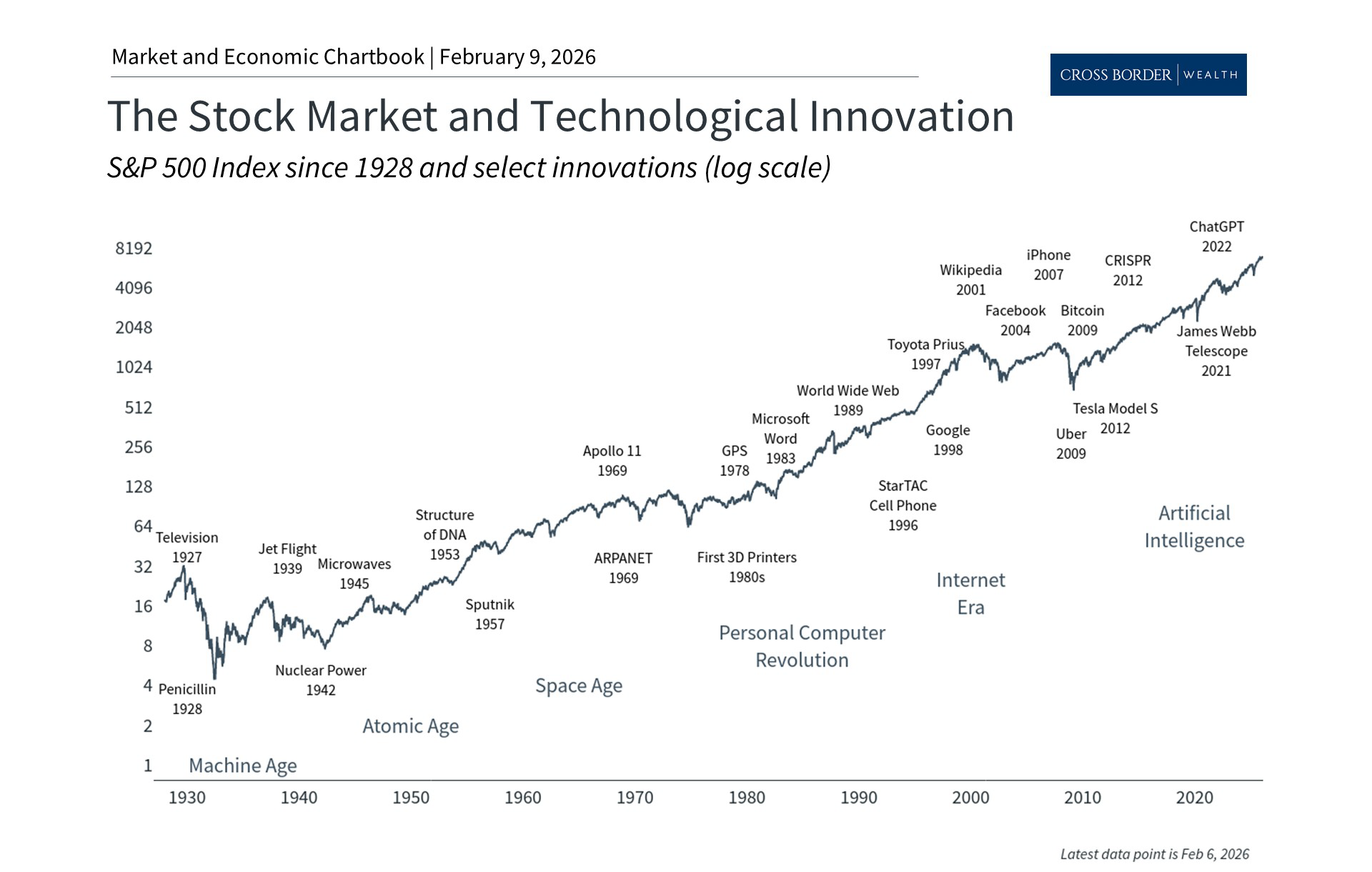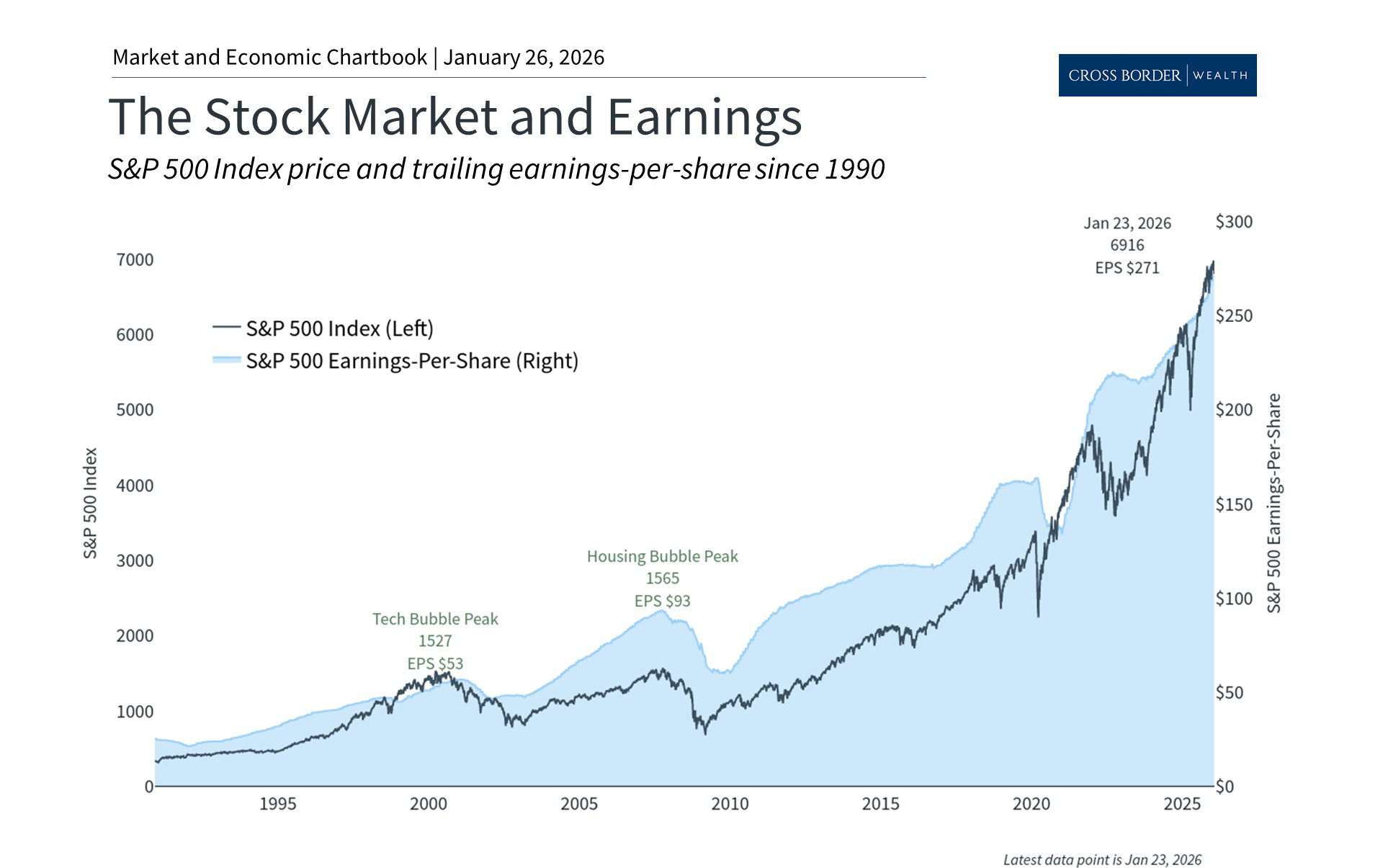Why Investor Fortitude Is the Real Lesson of 2020
- Market Insights
- 4 mins
Long-term investors understand that financial markets can behave unpredictably over the course of days, weeks and months. How an investor reacts to this short-term uncertainty can play a significant role in whether they achieve their financial objectives. This is why it's important for investors to have both perspective and a trusted advisor in their corner since, in volatile times, the only thing we can control is our own behavior.
Fortunately, experience can play a big role in helping investors to stay disciplined and composed. Living through a turbulent period is worth more than reams of investment data and statistics. The feeling when the stock market appears to be in free fall and the financial media is in a bear market frenzy is a sensation that can only truly be experienced, not taught. The feeling in our gut that this time might be different, despite all of the academic and intellectual knowledge in our heads, is impossible to ignore.
Thus, despite the rapid recovery in the stock market, it's important for investors to focus on the right lessons in order to prepare for the next inevitable market bump. Even if history records the first half of 2020 as a blip for markets, it was a test of investor fortitude nonetheless.
What should investors take away from the last several months?
First, it's not unusual for the stock market to fall several percent points, even in a single day. Over the course of 2020, a theoretical investor that checked their statement regularly would have experienced ten distinct 5% pullbacks in the stock market as it fell into bear market territory. While this is the most since 2011 when the U.S. dollar was downgraded and the market plummeted, these types of declines occur often.
Second, despite large pullbacks in the market every single year, the U.S. stock market more often ends on a positive note than a negative one. Specifically, the last decade has seen intra-year stock market declines ranging from -3% to -34% (with dividends) due to a range of issues including the federal budget, Eurozone crisis, trade wars, geopolitical risk, a pandemic, and more.
Still, the stock market finished in negative territory only one of those years. While this provides no guarantees for the future, market recoveries tend to occur if underlying fundamentals are still intact or can recover quickly. Today, the fact that many parts of the economy can rebound quickly after the initial COVID-19 crisis and economic shutdown has spurred a stock market recovery.
Third, over-reacting to negative headlines or recent market performance often backfires as market sentiment shifts. These swings can happen quickly and unexpectedly, as was the case earlier this year. Attempting to time the market is not only difficult but might be impossible to do consistently. Over the past 25 years, exiting the market after every large daily pullback has resulted in significantly poorer performance whether one stays in cash for one week or one year. Thus, it's often better to simply hold onto a properly positioned portfolio.
As the saying goes, never let a crisis go to waste. Now that the dust has settled for a bit, it's important for investors to reflect on the experience of the last several months and consider how they might react the next time volatility strikes. The circumstances will undoubtedly be different but having the right perspective and discipline will stay the same. Below are three charts that highlight important lessons for long-term investors.
1. The number of short-term pullbacks in 2020 is the highest in almost a decade
Stock Market Pullbacks
Find this chart under "Volatility and Staying Invested"
This chart shows the number of distinct 5% market pullbacks a theoretical investor would experience in any given year. Through the first 8 months of 2020, investors have experienced 10 of these declines. While this is the highest level since 2011, it is not unusual for many of these to occur in any given year.
2. The stock market has recovered despite falling into bear market territory
Total Returns and Pullbacks
Find this chart under "Volatility and Staying Invested"
Although the stock market fell into bear market territory this year, it has since rebounded and is now near record highs. This is a common pattern across history - the stock market may pull back in any given year, but often ends on a positive note. While there are no guarantees, those investors who can focus on years instead of weeks are more likely to benefit from these long-run gains.
3. History teaches us to not over-react to short-term volatility
Market Timing - 25 Years
Find this chart under "Volatility and Staying Invested"
Over-reacting to short-term market performance can often lead investors astray. Over the past 25 years, running to the exits after a large daily decline has been detrimental to portfolios. This is true even if investors only flee to cash or other safer assets for a short period of time. This is because the stock market can often recover unexpectedly and has tended to rise over the course of years and decades. Missing out on these long-term gains is often more detrimental than the initial stock market pullback.
The bottom line? With the markets now calm, it's more important than ever for investors to reflect on the last several months. Learnings important lessons from this period can serve investors throughout their financial journey.
Cross Border Wealth is a SEC-registered investment adviser which may only transact business in those jurisdictions in which it is registered or qualifies for an exemption or exclusion from registration requirements.
Cross Border Wealth may discuss and display charts, graphs, formulas, stock, and sector picks which are not intended to be used by themselves to determine which securities to buy or sell, or when to buy or sell them. This specific information is limited and should not be used on their own to make investment decisions.
All information provided in this article is for educational purposes only and does not intend to make an offer or solicitation for the sale or purchase of any specific securities, investment, or investment strategies. Please ensure to first consult with a qualified financial adviser and or tax professional. Further, please note that while said information has been obtained from known sources which are believed to be reliable, none of these are guaranteed.

